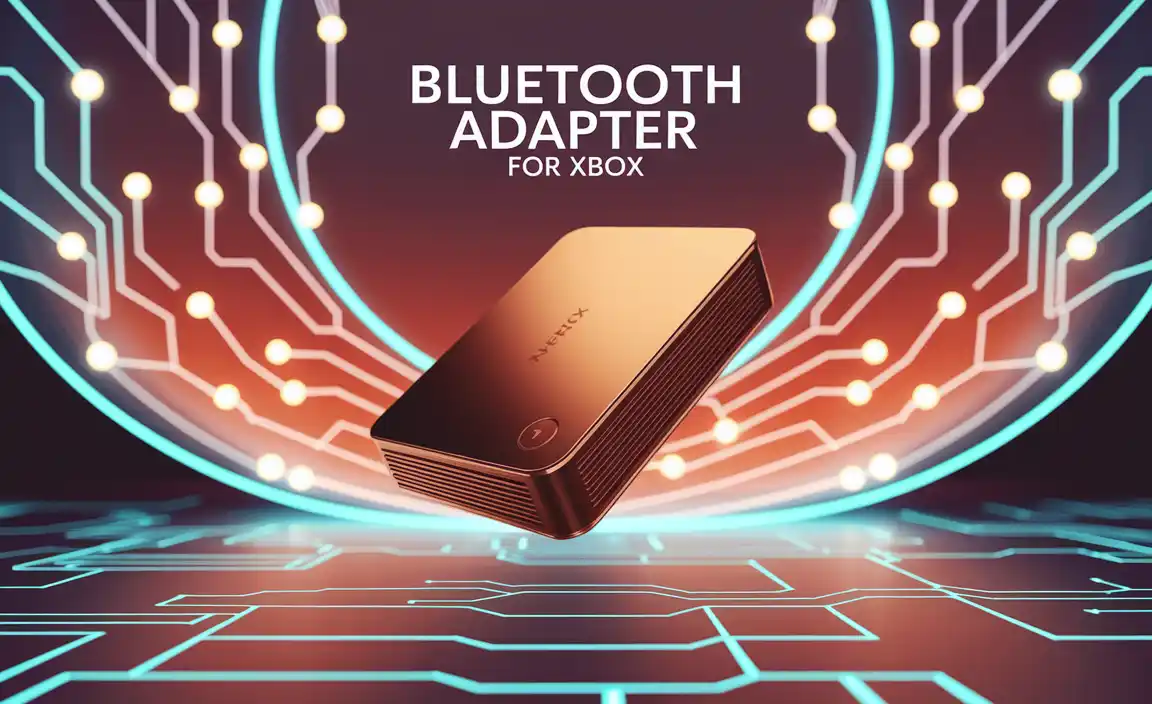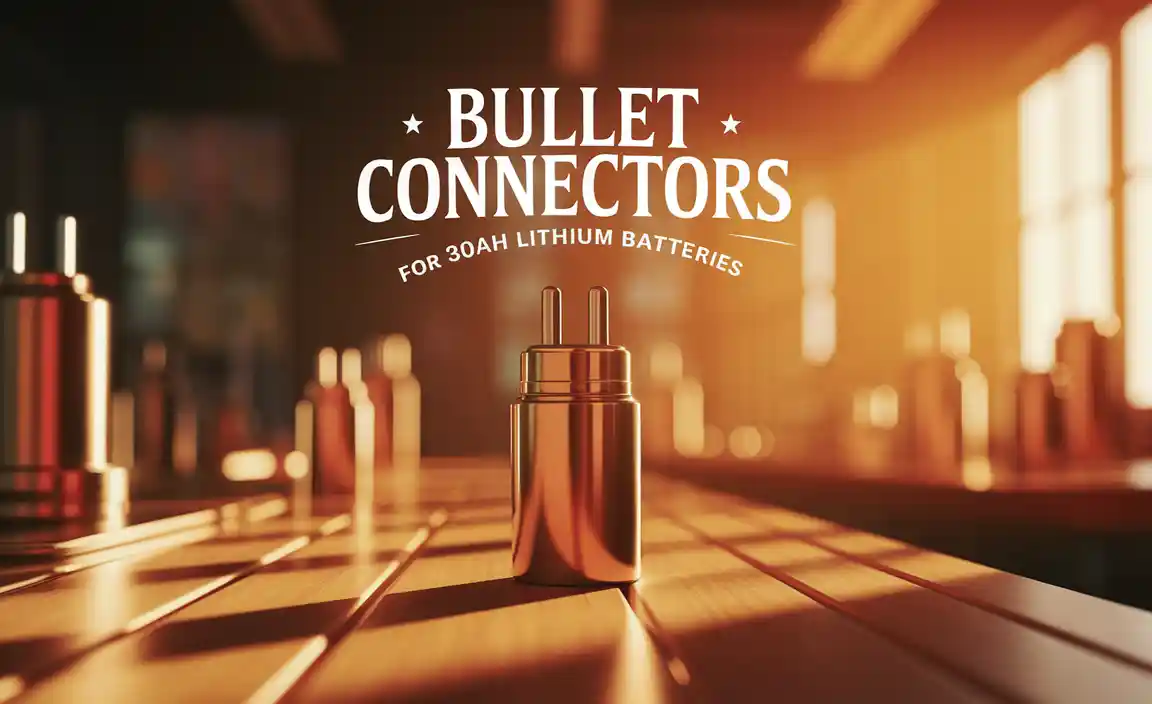Quick Summary
Yes, you can turn in your old car battery for cash! Most auto parts stores and scrap metal yards pay for used car batteries because they contain valuable lead and can be recycled. It’s a simple way to make money while responsibly disposing of hazardous waste. This guide will show you exactly how to get cash for your old battery.
Turn In Your Car Battery for Cash: The Proven Guide
That old car battery sitting in your garage or shed might be worth more than you think. It’s a common item many of us have lying around after a replacement, and figuring out what to do with it can be a puzzle. Not only are old car batteries hazardous waste if not disposed of properly, but they also hold valuable materials. This guide is your simple, step-by-step roadmap to turning that seemingly useless battery into cash. We’ll walk you through everything you need to know, making it easy and safe to get paid for your old car battery.
Many drivers wonder if it’s even possible to get money for a used car battery. The answer is a strong yes! It’s a win-win situation: you make some money, and the battery gets safely recycled, preventing harm to the environment. Let’s dive into how you can easily do this.
Why Turn In Your Car Battery? The Big Picture
Car batteries are packed with lead, a valuable metal that recyclers can recover and reuse. Recycling them is also incredibly important for the environment. Lead and the sulfuric acid inside batteries are toxic. If they end up in landfills, they can poison soil and water. Major organizations like the U.S. Environmental Protection Agency (EPA) strongly encourage recycling lead-acid batteries.
By turning in your old battery, you’re not just making a few bucks; you’re participating in a vital recycling process. It’s a responsible choice that benefits everyone.
Where Can You Turn In Your Car Battery for Cash?
Finding a place to take your old car battery is usually straightforward. Here are the most common options:
1. Auto Parts Stores
This is often the easiest and most popular choice. Major auto parts retailers are usually equipped to handle old car batteries and provide an exchange or cash for them. They often have a core charge policy for new batteries, which works in your favor when returning an old one.
- How it works: When you buy a new car battery, you’ll typically pay a “core charge.” This is an extra fee added to the price of the new battery that you get back when you return your old one (the “core”). Some stores will give you cash directly for your old battery, even if you didn’t buy a new one from them, though this amount might be less than the core charge refund.
- Popular Retailers:
- AutoZone
- Advance Auto Parts
- O’Reilly Auto Parts
- Pep Boys
- NAPA Auto Parts
- Tip: Always call ahead to confirm their policy and current buying price or core charge refund amount.
2. Scrap Metal Yards (Recyclers)
Scrap metal yards buy a variety of metals, and lead-acid batteries are a significant item they collect. These yards often pay based on the weight and current market price of lead. This can sometimes offer a slightly higher payout than auto parts stores, especially if you have multiple batteries.
- How it works: You bring your battery to the yard. They will typically weigh it and offer you money based on the lead content.
- Finding a Yard: Do a quick online search for “scrap metal yard near me” or “battery recycling center.”
- Important Note: Some yards have specific requirements for accepting batteries, such as ensuring they are drained of liquid or have certain markings. It’s best to call and ask about their policies.
3. Service Stations and Garages
Some independent garages and service stations also accept old car batteries for recycling, often for a small fee or a small payout. They might be less common places to get cash compared to dedicated parts stores or large scrap yards, but it’s worth asking if you’re already getting service done.
How Much Can You Expect to Get for Your Car Battery?
The amount you get for your old car battery can vary based on several factors:
- Location: Prices differ by region and local market demand for lead.
- Type of Battery: While most are standard lead-acid, there can be slight variations.
- Core Charge Policies: If you’re returning a battery when buying a new one, you’ll typically get a set core charge refund, usually between $10-$25.
- Scrap Yard Prices: If you sell directly to a scrap yard, they pay by weight (batteries typically weigh 30-50 lbs). The price per pound of lead fluctuates, but you might get anywhere from $5 to $15 or more per battery.
Here’s a general idea:
| Scenario | Typical Payout Range | Notes |
|---|---|---|
| Returning Old Battery for New Battery Purchase (Core Charge Refund) | $10 – $25 | This is the most common scenario. You get the core charge back. |
| Selling Directly to an Auto Parts Store (No Purchase) | $5 – $15 | May be less than a core charge refund. Policies vary. |
| Selling to a Scrap Metal Yard | $5 – $15+ | Depends on weight and current lead prices. Often pays more if you have multiple batteries. |
Step-by-Step: Turning In Your Car Battery for Cash
Ready to make some money? Follow these simple steps:
Step 1: Prepare Your Old Battery
Before you head out, there are a few things to do:
- Safety First! Always wear gloves and eye protection when handling a car battery. They contain corrosive sulfuric acid.
- Handle with Care: Batteries are heavy (30-50 lbs). Be mindful of your back when lifting. A battery carrier strap can be helpful.
- Cleanliness: Wipe off any loose dirt or grime from the exterior. This isn’t strictly necessary for payment but makes it nicer to handle.
- No Leaks: Ensure the battery isn’t leaking acid. If it is, handle it with extreme caution and inform the place you’re taking it to.
- Keep it Upright: Always transport and handle the battery in an upright position to minimize the risk of acid spillage.
Step 2: Find a Location
As discussed above, decide if you’re going to an auto parts store or a scrap metal yard.
- Auto Parts Store Pros: Convenient, especially if you’re buying a new battery. Easy drop-off.
- Scrap Yard Pros: Can sometimes offer slightly better cash prices, especially for multiple batteries.
A quick search online for “where to sell car battery near me” will give you local options.
Step 3: Contact the Location (Recommended)
It’s always a good idea to call ahead:
- Confirm they accept used car batteries for cash or core charge refunds.
- Ask about their current rates or refund amounts.
- Inquire about any specific requirements they might have (e.g., needing to show ID, maximum number of batteries).
Step 4: Transport the Battery Safely
Most people transport batteries in their car trunk or truck bed. Here’s how to do it safely:
- Secure it: Place the battery in a sturdy plastic container or a thick plastic bag to catch any potential leaks.
- Keep it Upright: Ensure it remains upright during transport.
- Ventilation: If it’s very hot, consider that batteries can release a small amount of hydrogen gas. Ensure some ventilation if possible.
Step 5: Make the Exchange
Once you arrive:
- At an Auto Parts Store:
- If buying a new battery: Bring your old one to the counter. They will process the core charge refund, often deducting it from your new battery purchase or giving you cash back.
- If just returning: Inform the staff you have a used battery to return. They will inspect it and give you the appropriate cash amount based on their policy.
- At a Scrap Metal Yard:
- Inform the staff you have a car battery for sale.
- They will weigh it and tell you the price based on the current lead market.
- They will then pay you in cash.
Keep any receipts or documentation if required.
What to Do If Your Battery is Damaged or Leaking?
Car batteries are considered hazardous waste. If your battery has significant damage, cracks, or is leaking acid, you need to be extra careful:
- Wear Full Protective Gear: Heavy-duty gloves and safety goggles are essential.
- Containment: Place the leaking battery in a thick, leak-proof plastic container immediately. Double-bagging might be necessary.
- Inform the Facility: When you arrive at the auto parts store or scrap yard, tell them the battery is leaking. They have procedures for handling damaged hazardous materials.
- Handle with Extreme Care: Avoid tilting or shaking a leaking battery.
Some facilities may refuse to accept severely damaged batteries, or they might have special handling fees. It’s always best to call ahead and explain the situation.
Alternatives to Selling Your Battery
While getting cash is great, there are other responsible ways to dispose of a car battery if selling isn’t an option:
1. Hazardous Waste Drop-Off Sites
Many local municipalities and counties have designated hazardous waste disposal sites or special collection events where you can drop off batteries for free. Check your local government’s waste management website for details.
2. Donate to a Local Mechanic/Shop
Some smaller shops might take old batteries for their own recycling program or to use for testing purposes. It’s a bit more of a long shot, but worth asking if you have a friendly relationship with a local mechanic.
Battery Safety Tips You Should Know
Handling car batteries isn’t just about getting cash; it’s about doing it safely. Here are key safety tips to remember:
General Handling Precautions
- Wear Safety Gear: Always use chemical-resistant gloves and safety glasses or goggles.
- Avoid Sparks: Never smoke or create sparks near a battery. They can release flammable hydrogen gas.
- Keep Away from Children: Store old batteries out of reach of children and pets.
- Proper Lifting: Batteries are heavy. Bend your knees and lift with your legs to avoid back strain. Consider using a battery carrier.
Acid Safety
- Know About Sulfuric Acid: The electrolyte inside is diluted sulfuric acid, which is corrosive.
- In Case of Contact: If acid gets on your skin, wash it immediately with large amounts of water. If it gets in your eyes, rinse thoroughly with water and seek medical attention immediately.
- Ventilation: When working with batteries, ensure good ventilation.
Battery Disposal and Recycling
- Never Trash It: Do not throw car batteries in your regular trash. They are hazardous waste.
- Recycle Properly: Always use designated recycling points like auto parts stores or scrap yards.
FAQs About Selling Your Old Car Battery
Q1: Can I really get money for a dead car battery?
A1: Absolutely! Even a dead battery contains valuable lead and other materials that recyclers want. Most places that accept them for recycling will offer you cash or a credit.
Q2: How much is an old car battery worth?
A2: You can typically expect anywhere from $5 to $15 for an old car battery if you sell it to a scrap yard. If you’re returning it when buying a new one, you’ll receive the core charge refund, usually between $10 and $25.
Q3: Do I need to remove the battery myself?
A3: Yes, you will generally need to remove the battery from your vehicle yourself. Auto parts stores and scrap yards are buying the battery, not performing the removal service.
Q4: Can I just drop off any old battery?
A4: Most places accept standard automotive lead-acid batteries. However, some specialized batteries (like deep-cycle marine batteries) might have different recycling procedures or values. It’s always best to call and confirm.
Q5: What if my battery is leaking?
A5: Handle a leaking battery with extreme caution, wearing gloves and eye protection. Try to contain the leak and inform the facility where you’re taking it about the condition. They will advise on how to proceed.
Q6: How do I find a scrap metal yard that buys car batteries?
A6: You can search online for “scrap metal yard near me” or “car battery recycler.” Many yards will list the materials they accept, including lead-acid batteries.
Conclusion
Turning in your old car battery for cash is a practical and environmentally sound decision. It’s a simple process that many auto parts stores and scrap metal yards make easy. By following these steps, you can safely handle your old battery, find a convenient buyer, and put some extra money in your pocket. Remember to always prioritize safety by wearing protective gear and handling the battery with care. This small act contributes to a larger, important recycling effort!



